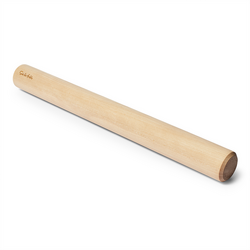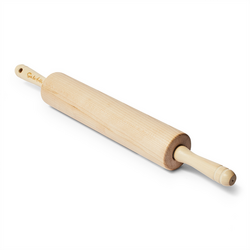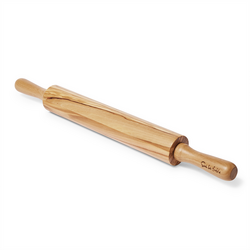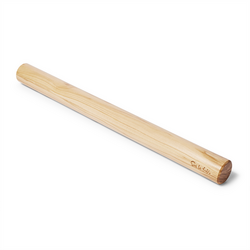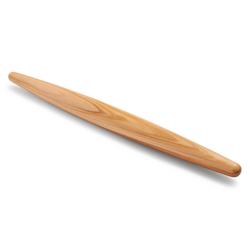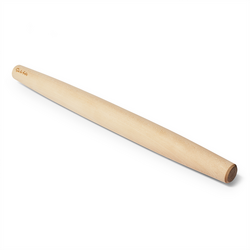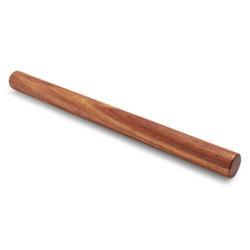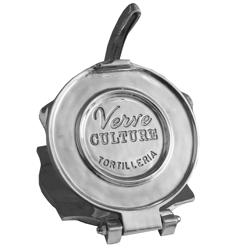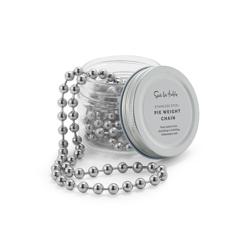-
(44)
Great size, great feel, interacts with dough in a non clinging way Love it...Best rolling pin ever. Easy to clean and use.
Pros: weight, size, made in usa
-
(16)
Great...Great Product
Pros: nice, easy to use, lovely
-
(1)
I love my rolling pin.
Pros: improves baking skills, appropriate size
-
Roll out doughs for pies, tarts, cookies and more with this rolling pin made from durable olivewood rolling pin. Olivewood resists odors and stains.
-
(10)
Tapered olive wood rolling pin is the best!...You will love it....Love it...Love this! Lightweight & easy to handle
Pros: beautiful wood, easy to use, ergonomic
-
(4)
Great value! Plan to pass it to our kids with our favorite cookie recipes when the time comes.
Pros: well made, made in america, water repellent
Rolling Pin For Making Pie
A rolling pin is a simple kitchen tool that can make the difference between a flaky pie crust and one that's tough and chewy. It's also one of the most versatile tools in your kitchen. You can use it to roll out cookie dough, pizza dough, and more. Here are some great options for rolling pins. Here are some great options.
Rolling Pin For Making Pie
FAQ List
The best material for a rolling pin depends on personal preference and the type of baking you plan to do. Wooden rolling pins are classic and versatile, while marble rolling pins stay cooler and are great for working with delicate doughs. Silicone rolling pins are non-stick and easy to clean, making them a popular choice for busy bakers.
The size of a rolling pin you choose will depend on your personal preference and what type of baking you plan to do. Larger rolling pins are great for rolling out large sheets of dough, while smaller rolling pins are perfect for more delicate work. Whatever size you choose, make sure it feels comfortable in your hand and is easy to maneuver.
Absolutely! A rolling pin is a versatile tool that can be used for a wide variety of tasks beyond just making pie crusts. From rolling out sugar cookie dough to flattening chicken cutlets, a good rolling pin is a valuable addition to any kitchen.
The care instructions for a rolling pin will depend on the material it is made from. Wooden rolling pins should be washed by hand and dried thoroughly to prevent warping. Marble rolling pins can be wiped clean with a damp cloth and dried with a towel. Silicone rolling pins are typically dishwasher safe, but it's always a good idea to check the manufacturer's instructions.
A rolling pin can be used on a variety of surfaces, including a pastry board, a silicone mat, or even a large sheet of parchment paper. Just make sure the surface is clean and dry before you start rolling out your dough.

